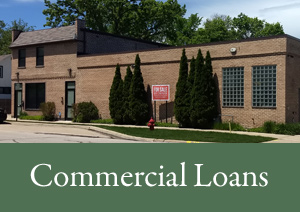Post
What Are the Common Pitfalls to Avoid in Commercial Mortgages?

Securing a commercial mortgage can be a daunting process, filled with potential missteps that could cost you time and money. Understanding these pitfalls can make the difference between a smooth transaction and a financial headache. In this article, we’ll walk you through the most common mistakes to avoid, ensuring you are well-prepared for this crucial business decision.
Inadequate Research and Preparation
Jumping into a commercial mortgage without thorough research is like setting sail without a map. One of the biggest mistakes is not understanding the local real estate market and economic conditions. For example, overpaying for a property or choosing a poor location can significantly impact your business’s profitability.
Equally important is the state of your business finances. Lenders will scrutinize your financial health, so ensure your financial statements, business plans, and credit scores are up to date. Neglecting this preparation can lead to higher interest rates or even rejection of your mortgage application.
Misunderstanding Loan Terms
Loan terms can be confusing, but misunderstanding them can have serious consequences. For instance, not knowing the difference between fixed and variable interest rates can lead to unexpected increases in your monthly payments. Fixed rates provide stability, while variable rates might start low but can rise over time.
Another critical aspect is loan covenants. These are conditions set by the lender that can restrict certain business activities. Ignoring these covenants can result in penalties or the loan being recalled. Additionally, be wary of prepayment penalties, which can cost you if you decide to pay off the loan early. Always read the fine print and understand these terms thoroughly.
Insufficient Down Payment
Thinking a small down payment is enough can be a costly mistake. A substantial down payment reduces the loan-to-value ratio, leading to lower interest rates and less risk of default. Conversely, a low down payment increases your financial burden and can make you a less attractive borrower.
Using alternative financing to cover the down payment might seem like a good idea, but it often comes with high costs. Secondary financing can increase your overall debt, putting a strain on your business’s cash flow. It’s essential to plan and save for a significant down payment to avoid these pitfalls.
Overlooking Property and Building Conditions
Accurate property valuation is crucial. Failing to get a proper appraisal can result in borrowing too much or too little. Overpaying for a property strains your finances, while under-borrowing might leave you without enough funds to complete the purchase or make necessary improvements.
Another major oversight is not thoroughly inspecting the building. Structural issues, code violations, and environmental hazards can lead to unexpected repair costs and legal liabilities. Investing in comprehensive inspections and due diligence can save you from future headaches and financial strain.
Neglecting Professional Advice
Many borrowers skip hiring a real estate attorney to review their documents, thinking it’s an unnecessary expense. This can be a costly error. A real estate attorney can identify critical legal implications and clauses that you might overlook, ensuring you fully understand what you’re signing.
Similarly, underestimating the role of a mortgage broker can lead to less favorable loan terms. A good mortgage broker has the expertise and connections to find better interest rates and conditions. Their knowledge can save you money and provide peace of mind throughout the mortgage process.
Cash Flow Mismanagement
Overestimating rental income is a common pitfall. Projecting overly optimistic rental figures can leave you short of cash when actual income falls below expectations. It’s better to be conservative in your estimates to ensure you can cover your mortgage payments.
Ignoring operational expenses is another mistake. Maintenance, taxes, insurance, and other costs can add up quickly. Failing to account for these expenses can lead to cash flow shortages and financial instability. A detailed budget that includes all potential costs will help you manage your finances more effectively.
Misjudging Loan Maturity and Exit Strategy
Choosing a short-term loan without a clear plan for refinancing or selling the property can be risky. When the loan matures, you might struggle to secure new financing, leading to potential foreclosure. It’s essential to plan your exit strategy from the beginning.
An exit strategy involves having a clear plan for either selling the property or refinancing the loan before it matures. This ensures you are not caught off guard when the loan term ends. Without a solid exit strategy, you could find yourself in a difficult financial situation.
Conclusion
Securing a commercial mortgage is a complex process, but being aware of these common pitfalls can help you navigate it successfully. Thorough research, understanding loan terms, saving for a substantial down payment, conducting proper inspections, seeking professional advice, managing cash flow, and planning your exit strategy are all crucial steps to ensure a smooth transaction.
At 1st Eagle Mortgage, we understand the challenges of securing a commercial mortgage. Our team is dedicated to helping you avoid these pitfalls and find the best financing solution for your business. By being prepared and informed, you can make confident decisions and achieve your business goals with ease.
No comments yet




